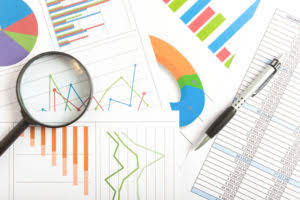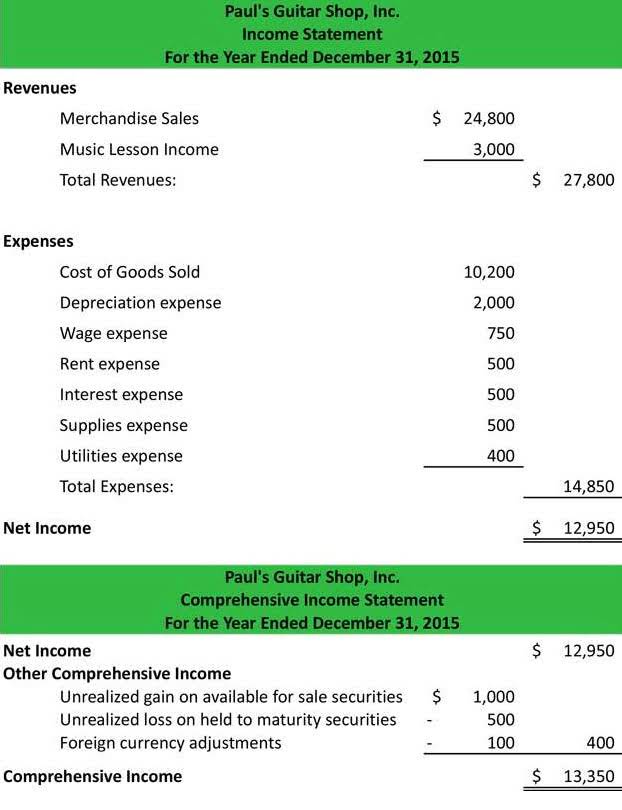The Basics of Self-Employed Bookkeeping: The Ultimate Guide for Freelancers, Sole Traders and Solo Entrepreneurs

Rather than waiting for a project’s completion before invoicing, these strategies contribute to a more sustainable and predictable cash flow, fortifying your business’s financial foundation. Establishing a dedicated business bank account is a prudent move when embarking on your entrepreneurial journey. By segregating personal and company finances, you facilitate the streamlined management of accounts and bookkeeping as a sole trader. This initial step not only eases your current financial oversight but proves invaluable as your business expands, navigating an increasing number of transactions. Ensuring and maintaining accurate bookkeeping for sole traders has never been easier than Quickbooks. Our accessible and versatile accounting software for sole traders has been used by millions around the world to boost tax compliance.
- Categories could include office supplies purchases or travel expenses related to work-related tasks.
- However, regular monitoring will allow you to identify potential issues early on before they become significant problems.
- In researching bookkeeping or bookkeeping accounting, you may come across information on accounting or find that bookkeeping and accounting are used interchangeably.
- The thought of having your financial records scrutinised can be intimidating, but with proper preparation, you can ensure a smoother process.
- This means that you will need to charge VAT on your goods and services and submit regular VAT returns to HMRC.
How to manage your accounts and bookkeeping as a sole trader
- Accurate invoicing and accounts receivable monitoring provide insight into customer payment patterns and cash flow.
- As a sole trader, it’s essential to have a clear understanding of your cash flow.
- Expense Tracking – Review and categorise business expenses, keeping receipts organised.
- Additionally, reconciling bank accounts and credit card statements regularly can help you avoid overdraft fees and other unnecessary expenses.
As a sole trader, detailed bookkeeping is crucial as you must report your business profits at the end of each tax year. That way, bookkeeping for sole trader you’ll have a better idea of how much you owe in taxes before the end of the financial year and can plan accordingly. It’s essential to be proactive about your tax obligations to avoid any penalties or interest charges for late payment. Recording transactions is the backbone of any bookkeeping system for sole traders. Compare entries with bank statements, credit card bills, client invoices, etc, monthly. Small teams allow sole traders to have more informal accounting processes versus corporations.
What taxes does a Sole Trader pay?
Avoiding human error and ensuring accuracy in your financial records is critical. By keeping accurate records, you can ensure that your financial https://www.bookstime.com/ information is correct and up to date. Legal requirements for record retention necessitate keeping your financial records for at least 5 years after the 31 January submission deadline of the relevant tax year.

Selecting accounting software
- There are considerable benefits sole traders can gain by maintaining meticulous, up-to-date accounting records.
- For example, you might complete the Intuit Bookkeeping Professional Certificate or several other bookkeeping courses offered by universities and companies on Coursera.
- Our accessible and versatile accounting software for sole traders has been used by millions around the world to boost tax compliance.
- As a sole trader, bookkeeping and managing your accounts are the key tasks you have to deal with.
Additionally, professionals can offer insights into your business’s financial health and help identify areas for improvement. They may also be able to provide recommendations for tools and software that can streamline your bookkeeping processes. When completing your tax return, you will need to provide details of your income, expenses, and any tax deductions that you are entitled to. You will also need to calculate your tax liabilities and ensure that you pay any tax that you owe on time. Hiring the right accountant for your sole trader business will help free up your time to concentrate on other essential areas, like sales and marketing, or strategy planning.

Tips for Sole Trader Bookkeeping and Accounting
In the Flat Rate scheme, you charge your customers at the standard rate of VAT and pay the money back to HMRC at a lower rate, depending on the nature of your business. You can opt for the standard VAT scheme or Flat Rate VAT, which was set up to help reduce the admin load for smaller businesses. You need to pay your quarterly Class 2 National Insurance bill, which is a basic payment that goes towards your state pension in the future. Each payment is equal to half the amount of tax you owe for the previous tax year. Once you’re in the system and have paid your first return, you need to pay tax twice a year, on 31 January and 31 July. When you buy anything for the business, including a coffee ‘on expenses’, always request the VAT receipt—some https://www.facebook.com/BooksTimeInc/ shops don’t issue a receipt by default.
- This simplifies the process of completing your annual accounts and Self Assessment Tax Return, saving you valuable time and effort.
- At Crunch we provide affordable cutting-edge, easy-to-use software with real human support from expert chartered accountants.
- Profitability ratios indicate how well you’re generating income relative to expenses.
- Creating this statement involves identifying all sources of income, such as sales revenue or investments, as well as expenses like rent, salaries, and other operating expenses.
- The credit card reconciliation process is similar but requires some additional steps compared to reconciling bank accounts.
- Speak to your accountant to see if they can offer a tutorial and any training you may require.
Seek Professional Opinions

Online software makes it easy to take photos and scan receipts and invoices straight into your accounting software as attachments to transactions. It can be a daunting task as every receipt, invoice, and bill must be logged, however it’s essential for creating the likes of accurate tax returns and business plans. Moreover, regular reviews help ensure that all transactions have been accurately recorded in your books. If there are discrepancies between your bank statements and accounting records, addressing them immediately can prevent bigger problems down the road. In this way, when it’s time to pay the tax bill at year-end or quarterly if required by ATO (Australian Taxation Office), there won’t be an unexpected hit that damages your finances.
